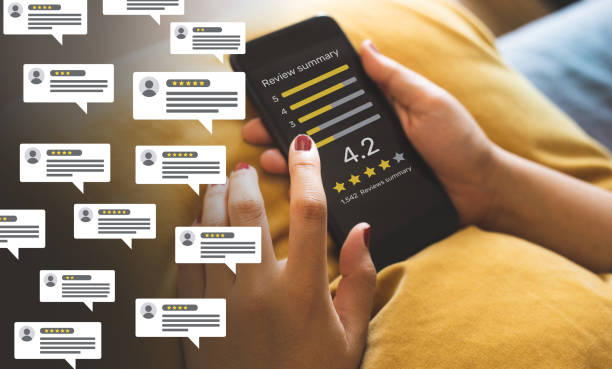In the dynamic world of entrepreneurship, maintaining a clear boundary between personal and business finances is crucial. This separation not only simplifies accounting but also helps build a strong credit profile for your business, which can unlock better financing options and protect your personal assets. So, here’s an enthusiastic guide on how to effectively separate personal and business credit to pave the way for financial success.

Understanding the Importance of Separation
Before diving into the steps, it’s essential to understand why separating personal and business credit is beneficial:
- Professionalism: Keeping business finances distinct from personal finances enhances the professional image of your business. So, it signals to lenders, investors, and partners that you are serious and organized.
- Legal Protection: For businesses structured as LLCs or corporations, separating finances can protect your personal assets from business liabilities. Additionally, this is known as the “corporate veil.”
- Tax Simplification: Clear separation simplifies tax preparation and reduces the risk of errors. Also, it ensures you can take advantage of all available business deductions without mixing personal expenses.
- Credit Building: Establishing business credit allows you to build a credit history for your company, which can lead to better financing terms and higher credit limits.
Steps to Separate Personal and Business Credit
-
Choose the Right Business Structure
The first step is to choose a business structure that supports the separation of personal and business finances. Moreover, sole proprietorships do not offer personal liability protection, making it harder to separate finances. Consider forming an LLC (Limited Liability Company) or a corporation, both of which provide legal protection and facilitate financial separation.
-
Obtain an Employer Identification Number (EIN)
An EIN is like a Social Security number for your business. Additionally, it’s required for tax purposes and is necessary to open a business bank account. So, you can apply for an EIN through the IRS website.
-
Open a Business Bank Account
Once you have your EIN, open a dedicated business bank account. Additionally, this account should be used exclusively for business transactions. Also, all income, expenses, and financial activities related to your business should go through this account.
-
Get a Business Credit Card
A business credit card is a vital tool for separating expenses. Use it exclusively for business-related purchases. This not only helps maintain clear records but also begins building your business credit history. Also, choose a card that offers rewards or benefits that align with your business needs.
-
Establish a Business Address and Phone Number
Using a separate address and phone number for your business adds to your credibility and helps keep personal and business communications distinct. So, consider using a virtual address service if you work from home.

-
Create a Business Plan
A detailed business plan outlines your business goals, strategies, and financial projections. It serves as a roadmap for your business and is often required when applying for loans or attracting investors. A solid business plan demonstrates that you are serious about your business.
-
Maintain Accurate Records
Keeping detailed and accurate financial records is crucial. Use accounting software to track income, expenses, invoices, and receipts. Also, regularly update your records and review them to ensure accuracy. This practice not only helps during tax time but also provides insights into your business’s financial health.
-
Pay Yourself a Salary
Instead of drawing money randomly from your business account, establish a consistent salary for yourself. Additionally, this helps maintain the separation of personal and business finances and simplifies accounting. So, decide on a reasonable salary based on your business’s financial health and your personal needs.
-
Build Business Credit
To build business credit, start by establishing accounts with suppliers and vendors who report to business credit bureaus. Additionally, pay your bills on time to build a positive payment history. Over time, this will improve your business credit score, making it easier to obtain loans and credit lines.
-
Monitor Your Credit
Regularly check both your personal and business credit reports. Moreover, this helps you stay aware of your credit standing and identify any discrepancies or fraudulent activities. You can get free business credit reports from credit bureaus like Dun & Bradstreet, Experian, and Equifax.
Benefits of Maintaining Separate Credit
- Access to Better Financing Options
A strong business credit profile can lead to better financing terms. Lenders are more likely to offer favorable interest rates and higher credit limits to businesses with a solid credit history. This can significantly reduce your cost of borrowing and improve cash flow.
- Enhanced Credibility and Professionalism
Businesses with established credit profiles are perceived as more credible and professional. This can help attract potential clients, partners, and investors, as they feel more confident in your business’s stability and reliability.
- Risk Mitigation
Separating personal and business credit reduces the risk to your personal finances. If your business faces financial difficulties, your personal credit score and assets remain protected. This separation also prevents personal financial issues from impacting your business’s creditworthiness.
- Improved Financial Management
Clear separation simplifies financial management and accounting. It allows you to track business performance more accurately, make informed decisions, and identify areas for improvement. This leads to better overall financial health for your business.

Common Mistakes to Avoid
- Commingling Funds
Avoid mixing personal and business funds. This can lead to accounting errors, complicate tax filings, and jeopardize your legal protections. Always use your business account for business transactions and your personal account for personal expenses.
- Neglecting Record-Keeping
Poor record-keeping can lead to financial mismanagement and missed opportunities for deductions. Use accounting software to maintain accurate records and regularly review them to ensure everything is in order.
- Ignoring Business Credit
Some business owners rely solely on personal credit to finance their business. Additionally, this limits your financing options and can negatively impact your personal credit score. Focus on building and maintaining a strong business credit profile.
- Failing to Pay Bills on Time
Timely payments are crucial for maintaining a good credit score. Late payments can damage your credit and make it harder to obtain financing. Set up reminders or automatic payments to ensure bills are paid on time.
Conclusion: Business Credit
Separating personal and business credit is a foundational step for achieving financial success in your entrepreneurial journey. It not only enhances your professional image but also provides legal protection, simplifies tax preparation, and opens up better financing opportunities. By following these steps and maintaining disciplined financial practices, you can build a strong credit profile for your business and set the stage for long-term growth and stability. So, embrace this process with enthusiasm, and watch your business thrive!









[…] on short-term opportunities, eToro offers the flexibility and support to help you achieve your financial goals. So, what are you waiting for? Take the plunge into the world of Bitcoin trading on eToro and […]